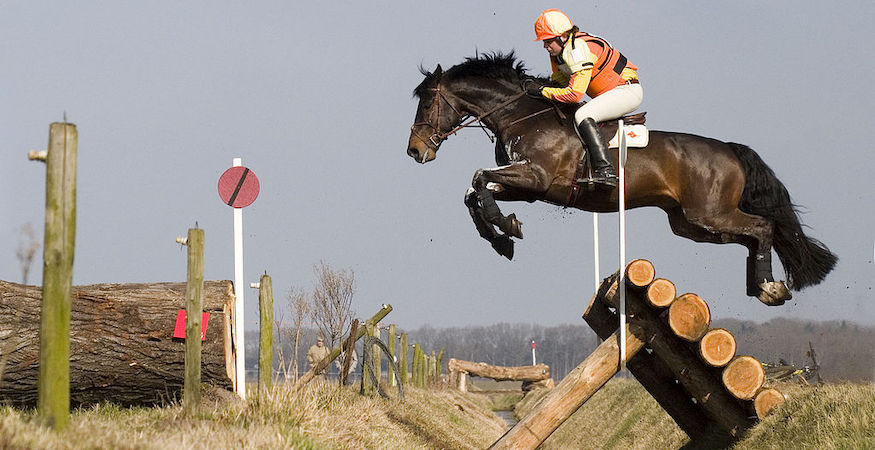The Woman Who Won’t Give Up
In February 2019, Karen Pozaylov was competing in the preliminary qualifiers for the Israeli Equestrian Championship. For years she had trained with the same horse. The animal was like a best friend. It was if the horse knew exactly what she wanted: He knew when to run, when to stop, when to gallop and when to trot. It was Karen’s confidence in her four-legged sporting partner which gave her the hope that she would win the championship.
During the first round of the competition things went according to plan. But the next round was one which would change her life for ever. After getting off to a good start, the horse jumped over a fence but when landing on his front two feet, he suddenly stopped. Karen flew off the saddle, right over the front of the animal and landed straight on her head. Medics rushed into the arena. One look at Karen told them that they immediately needed an ambulance. Rushed to hospital while still conscious, upon arrival she was induced into a coma. A few hours later, she was woken up to dreadful news: Karen was paralysed from the neck down and would never walk again.
“Karen was woken up to dreadful news: she was paralysed from the neck down and would never walk again”
After months of tears and desperation, Karen came to the conclusion that she would stop the self-pity and spend her time instead trying to do all she could to prepare herself for the day when she would walk again. The alternative, she decided, was to end her life; and Karen was not ready for that.
With the help of dedicated physical therapists who used various contraptions to move her limbs to strengthen the muscles, Karen spent every day in passive activity, from the moment she awoke to the minute she went to sleep. Nothing could quash her hope that the day would come when she would get out of the wheel chair, walk and even ride her horse again.
After several months of therapy, she went on a hunt throughout the world looking for a cure. A string of unsuccessful treatments in Israel which attempted to stimulate the nervous system, had led her to Bangkok for a ground-breaking operation on the spine. Accompanied by her husband Amos and dedicated care-giver, Anna, Karen’s hopes were high. The operation entailed the removal of a small part of her spine to make room for electrode implants that would hopefully stimulate the nervous system and connect the brain with the lower part of her body.
Although she could not walk immediately after the operation as she had hoped, the implants that send electric charges to her nervous system have brought about much progress. With considerable effort she is able to move the upper part of her body, and even has control over her right arm. Further, she has days without pain, which are “excellent days.” With grit, determination and the help of a conveyer belt, she has even taken her first few wobbly steps.
Karen’s quest for recovery doesn’t end with herself. She is working so the Israeli Ministry of Health will one day include the treatment for other paralysed patients, so unlike her, they won’t have to come up with the 100,000 dollars to pay for the treatment. Life is very uncomfortable in a wheel chair. But that is what Karen wants. She never wants to get used to it. Her very discomfort is what spurs her on to walk again.
In Karen’s understanding, there is nothing wrong with hope, because the very worse you can be, is simply disappointed. Karen, a native Hebrew speaker, likes to end her interviews by looking into the camera and declaring in English with a big smile, “to be continued.” And looking at those determined eyes, no one can disbelieve her.





